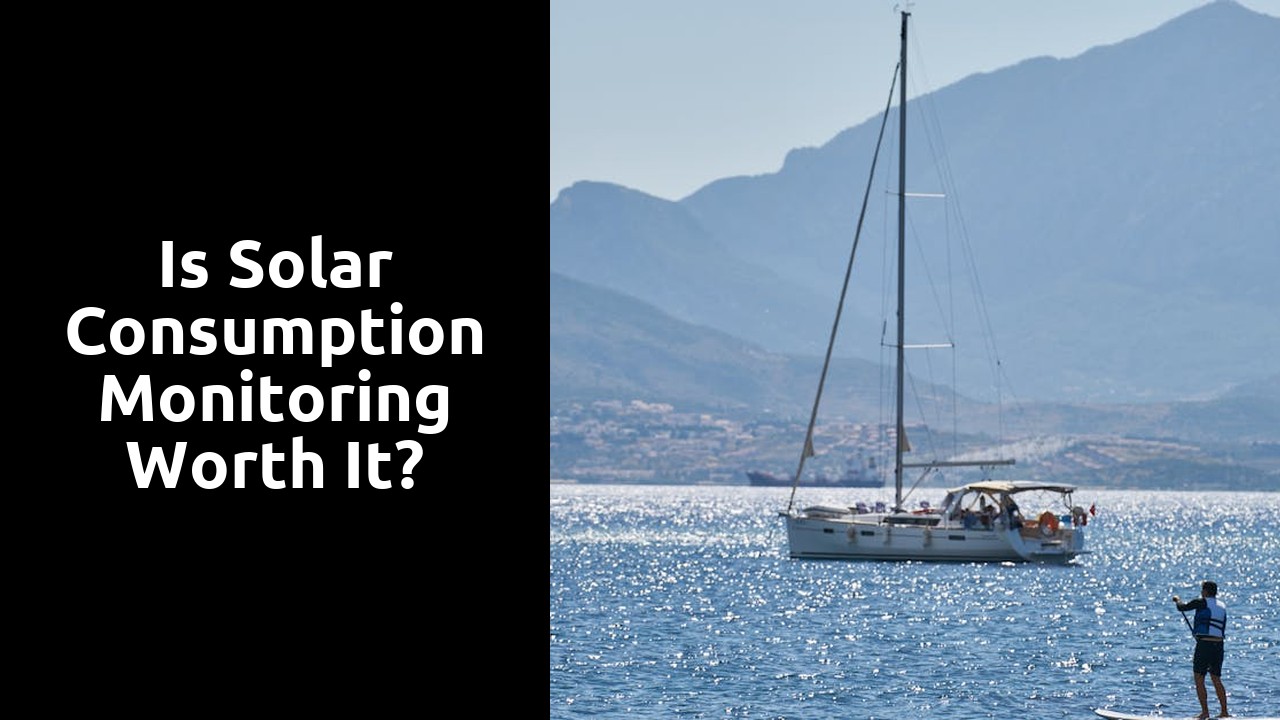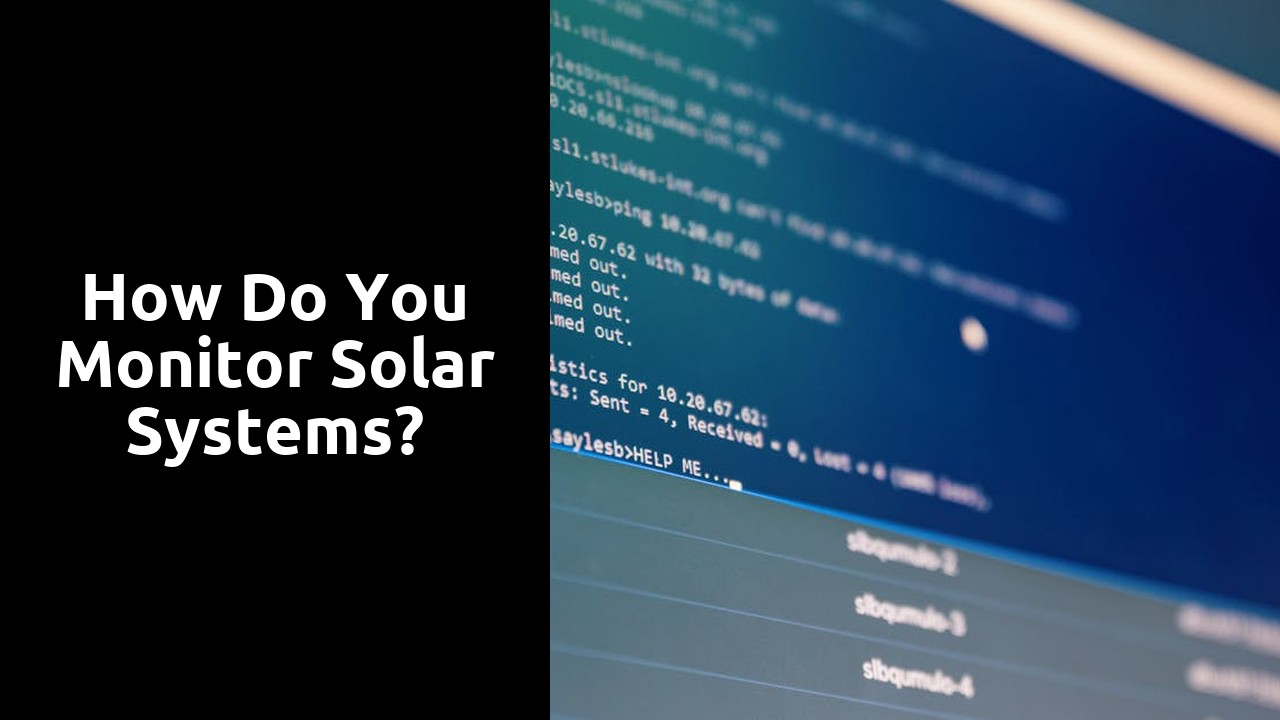
Table Of Contents
Comparison of Different Solar Consumption Monitoring Technologies
When it comes to monitoring solar consumption, there are various technologies available to cater to different needs and preferences. One common option is the use of smart energy meters, which provide real-time data on energy production and consumption. These meters can be synced with mobile apps or online portals for easy access to insights on energy usage patterns. On the other hand, some homeowners opt for inverter monitoring systems that track the performance of the solar panels and the efficiency of converting sunlight into electricity. These systems offer detailed analytics on energy generation and can help identify potential issues promptly.
Another popular choice for monitoring solar consumption is through integrated monitoring solutions that offer a comprehensive view of both energy production and usage. These systems often combine smart meters, inverter monitoring, and energy management software to provide a holistic approach to solar consumption monitoring. Additionally, for those looking to enhance energy efficiency further, some advanced solutions offer Solar Hot Water System Monitoring and Analysis, allowing homeowners to optimise their water heating systems for maximum energy savings.
Choosing the Right Solution for Your Home
When selecting the optimal solar consumption monitoring system for your home, it is crucial to assess your household's specific energy needs and consumption patterns. Consider factors like the size of your property, the orientation of your roof, and the amount of sunlight it receives throughout the day. Understanding these elements will enable you to determine the most suitable monitoring technology to maximise efficiency and savings on your energy bills.
One popular option for monitoring solar consumption is the utilisation of smart meters and monitoring software, which provide real-time data on your energy production and usage. Another trend gaining traction is Solar Hot Water System Monitoring and Analysis, allowing homeowners to track the performance of their solar hot water systems and make informed decisions to enhance their efficiency. By carefully evaluating your requirements and exploring the available solutions, you can select a solar consumption monitoring system that aligns with your goals for sustainable energy consumption and cost-effectiveness.
The Future of Solar Consumption Monitoring Innovations
The future of solar consumption monitoring innovations holds great promise for homeowners looking to optimize their energy usage. One exciting development is the integration of artificial intelligence (AI) technology into monitoring systems, allowing for more accurate data analysis and predictive insights. This advancement could revolutionize how homeowners manage their energy consumption, ultimately leading to greater efficiency and cost savings. Another area of innovation to watch out for is the enhancement of Solar Hot Water System Monitoring and Analysis. By leveraging advanced sensors and data analytics, homeowners can gain valuable insights into their hot water usage patterns, enabling them to make informed decisions to further reduce energy wastage and enhance overall system performance.
Anticipating Trends in Smart Energy Management
Anticipating Trends in Smart Energy Management
The relentless evolution of technology continues to shape the landscape of smart energy management. The integration of artificial intelligence and machine learning algorithms is anticipated to revolutionize energy consumption monitoring. This advancement will enhance the accuracy of data analysis and provide more detailed insights into energy usage patterns within households. Moreover, the rise of Internet of Things (IoT) devices is expected to further streamline the monitoring process, allowing for seamless data collection and real-time monitoring capabilities. One emerging trend to watch is the integration of smart meters with solar hot water system monitoring and analysis, providing homeowners with comprehensive data on their energy consumption patterns, thus enabling more informed decisions to optimize energy efficiency.
In addition to technological advancements, the focus on sustainability and environmental consciousness is becoming increasingly prevalent in the realm of smart energy management. The growing emphasis on renewable energy sources, such as solar power, is paving the way for innovative solutions in energy monitoring. This shift towards eco-friendly practices is expected to drive the development of more sophisticated tools for assessing and managing energy consumption. As a result, we can anticipate a surge in the adoption of solar hot water system monitoring and analysis technologies, as they play a pivotal role in promoting efficient energy usage and reducing carbon footprint.
Regulatory Considerations for Solar Consumption Monitoring
When it comes to regulatory considerations for solar consumption monitoring, it's crucial to understand the applicable standards and requirements set forth by governing bodies. Compliance with these regulations is essential for ensuring the safety, accuracy, and reliability of solar consumption monitoring systems. One key aspect to consider is the data privacy and security measures in place to protect the information collected from solar monitoring devices. Adhering to data protection regulations will not only safeguard the privacy of consumers but also build trust in the use of such technologies.
Another important regulatory consideration pertains to the integration of solar consumption monitoring systems with other renewable energy solutions, such as Solar Hot Water System Monitoring and Analysis. Ensuring seamless compatibility and compliance with industry standards will be vital for maximizing the efficiency and effectiveness of these interconnected systems. By staying abreast of regulatory developments and proactively addressing compliance requirements, homeowners can benefit from the full potential of solar consumption monitoring technologies.
Navigating Compliance Standards and Requirements
When it comes to implementing solar consumption monitoring systems, it is crucial for homeowners to adhere to specific compliance standards and requirements. These standards are put in place to ensure the safety, efficiency, and effectiveness of the monitoring technology. To avoid any potential issues, it is essential to thoroughly research and understand the regulatory considerations pertaining to solar consumption monitoring.
One key area to focus on is the monitoring of solar hot water systems. Solar hot water system monitoring and analysis play a crucial role in ensuring that these systems are operating optimally and are in compliance with relevant regulations. By carefully navigating compliance standards and requirements, homeowners can not only enhance the performance of their solar hot water systems but also contribute to overall energy efficiency in their homes.
FAQS
What is solar consumption monitoring?
Solar consumption monitoring is the process of tracking and analyzing the amount of energy generated by solar panels and how that energy is utilized within a household or building.
How can solar consumption monitoring benefit me?
Solar consumption monitoring can help you understand your energy usage patterns, identify areas where energy can be saved, optimize the performance of your solar panels, and ultimately reduce your electricity costs.
What are the different technologies available for solar consumption monitoring?
There are various technologies available for solar consumption monitoring, including smart energy meters, energy monitoring apps, cloud-based monitoring systems, and integrated solar monitoring solutions.
Is solar consumption monitoring worth the investment?
Yes, investing in solar consumption monitoring can be worth it in the long run as it can lead to significant cost savings, improved energy efficiency, and better overall management of your solar energy system.
How do I choose the right solar consumption monitoring solution for my home?
When choosing a solar consumption monitoring solution, consider factors such as your budget, the size of your solar system, the level of detail you require in monitoring, and whether you want additional features such as real-time alerts or remote access.
